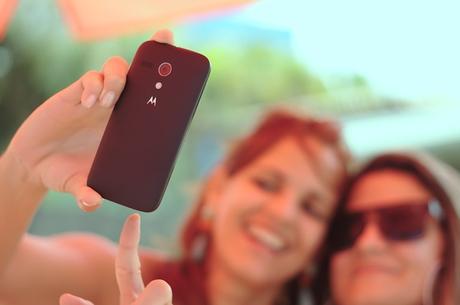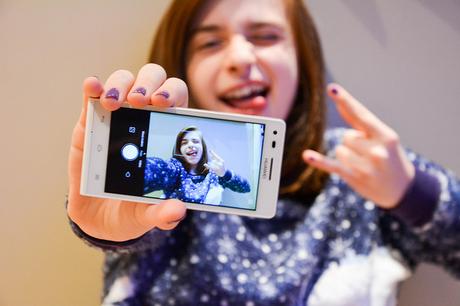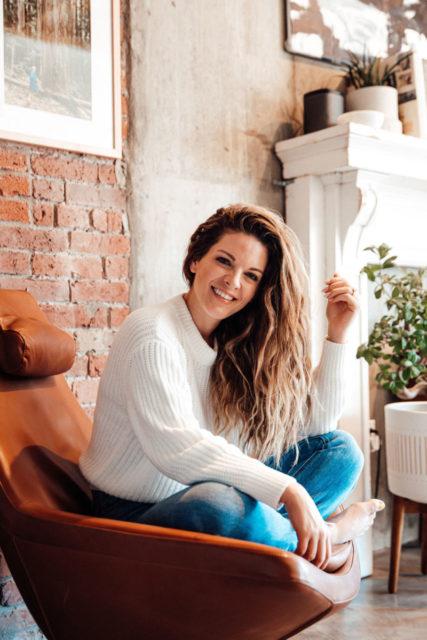
Whether it's an Instagram influencer flaunting their new penthouse, or that acquaintance from high school posting a filtered Snap with her boyfriend - it's easy to get wrapped up in the perfection we see all over social media. And listen, I'm not mad at a good filter. Still, there are some scary side effects that come with social media. In recent years, cosmetic surgeons have reported an uptick of women wanting plastic surgery to make them look exactly like they do in the filters they use on their phone. The term "Instagram Dysmorphia" was coined to describe this phenomenon.
Social media is addictive, and it's built to be manipulative. It's up to each individual user to consume content consciously. As someone who has made a career as a social media consultant and YouTube expert, I have to work extra hard to make sure my social media accounts don't consume me. If I can do it, so can you.

To find confidence beyond the 'gram, the first steps are to understand exactly how social media and its algorithms work - and why we love to post fun, filtered selfies on apps like Snapchat and Instagram. Then, create friction between you and your phone, so you make sure to build a happy, confident live outside the handheld device. Here are some ideas to get started.
Set boundaries.
In my house we have a rule: The phone stays in the kitchen. (Not the bedroom, not the den, or anywhere else where I spend a majority of my time). If I'm in my office working, or relaxing on the couch with my husband, we're not distracted by or constantly tempted to look at our phones. Putting a physical barrier between you and your phone is a great way to keep your screen time in check. Giving yourself a break from constant mindless scrolling is a refreshing way to create friction and make major gains on your mental health.
Turn off notifications.
These apps are built to get our attention. The people behind Instagram, Facebook, YouTube - whichever app it may be - need to have active users to stay successful. They know that if your phone lights up, of course you're going to grab it. You're human. But once you realize that this is exactly what the app is built for, you can take the upper hand. Turn your notifications off so that your phone can't demand your attention 24/7.
Understand your habits and your relationship with your phone.
On your iPhone, you can go into the "settings" app to check your screen time. Once you get an idea of how much time you spend on your phone each week, put goals in place. Maybe you want to limit your screen time to one hour a day, or reduce it a little bit each week.
When you are on your phone and checking social media apps, be conscious about what you "like" and comment on. Algorithms notice when you engage with a post, and will then go on to show you similar content.
For example, if you "like" that photo of the Instagram influencer who you think looks perfect, the app will continue to flood your timeline with similar photos. You'll be surrounded by this idea of perfection that is likely filtered and unattainable. And guess what? The more of it you see, the more damaging it is to your mental health.

Take a social media sabbatical.
I take a lot of sabbaticals from social media. I'll take weekends off, deleting all the apps throughout the week just to make sure I'm not tempted. As a matter of fact, another way to distance yourself from social media is to delete the apps off your phone permanently, and only allow yourself to use them when you're on a desktop. It may be tough at first, but soon you'll stop reflexively checking your phone whenever your mind wanders.
Try the "Return" test.
This is a big one. We've talked about social media viewing habits, but what about when you actually want to post something? Try this. Before you post a picture on Instagram, Facebook, Snapchat or wherever, ask yourself: What return am I expecting on this? Is it going to make me happy? It is going to get a message out? Is going to be helpful to others? If the answer to any of those questions is "no," think twice about why you're posting. Maybe you're better off saving it in the drafts folder for a different time.
Besides, the less time you spend checking who viewed your story or "liked" your post, the more time you spend with friends, family or working on a hobby or project to give you real confidence - the unfiltered kind.
__
This guest post was authored by Sunny Lenarduzzi.


Ms. Career Girl was started in 2008 to help ambitious young professional women figure out who they are, what they want and how to get it.

